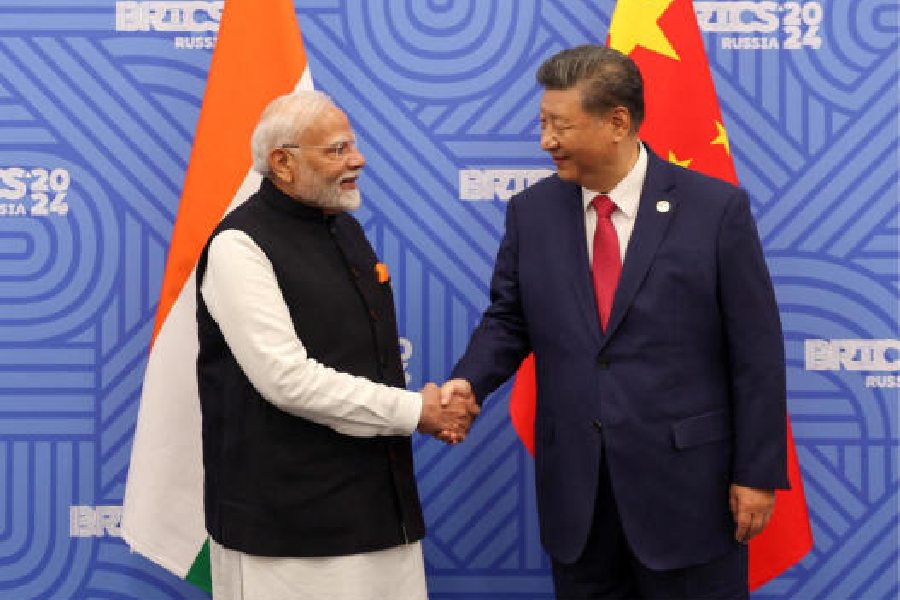Three days after announcing an agreement on patrolling and disengagement along the Line of Actual Control (LAC) in Depsang and Demchok, India and China remained cautious about the specifics of the understanding that facilitated Prime Minister Narendra Modi’s meeting with Chinese President Xi Jinping in Russia’s Kazanon Wednesday.
Though Chinese foreign ministry spokesperson Lin Jian addressed questions regarding the meeting and the agreement during a briefing on Thursday, he provided little information. His comments highlighted China’s desire to mend relations, contrasting with India’s emphasis on maintaining peace and tranquillity along the border, a response to Beijing’s incursions in 2020.
According to the Chinese readout on the meeting, Xi said: “The two sides should continue to uphold their important understandings, including that China and India are each other’s development opportunity rather than threat, and cooperation partner rather than competitor.
“They should maintain a sound strategic perception of each other, and work together to find the right and bright path for big, neighbouring countries to live in harmony and develop side by side.”
China also said that the two sides were of the view that the meeting was constructive and carried great significance.
“They agreed to view and handle China-India relations from a strategic height and long-term perspective, prevent specific disagreements from affecting the overall relationship, and contribute to maintaining regional and global peace and prosperity and to advancing multipolarity in the world.”
While the Chinese readout stressed a multipolar world, India talked about a multipolar world and a multipolar Asia, articulating New Delhi’s aspirations in the region. India has time and again asserted that a multipolar world is feasible only if there is a multipolar Asia.
Responding to questions about the meeting, the first bilateral engagement between Modi and Xi in five years, the Chinese spokesperson said: “They reached important common understandings on improving and developing China-India relations and set the course to steer bilateral relations back on the path of steady development.
“China stands ready to work with India to view and handle the bilateral relations from a strategic height and long-term perspective, step up communication and cooperation, enhance strategic mutual trust, properly handle differences, bring bilateral relations back to the path of steady development as soon as possible, and contribute to maintaining regional and global peace and prosperity and to advancing multipolarity in the world,” he said.
Through the past four years, China has maintained that the border dispute should not be allowed to dictate the trajectory of the bilateral relationship.
The patrolling agreement in Depsang and Demchok has laid the ground for India to take tentative steps towards restoring normalcy but former Indian ambassador to China, Gautam Bambawale, advocated caution. “We have to judge the Chinese by their actions, not their words,” he told ANI.











